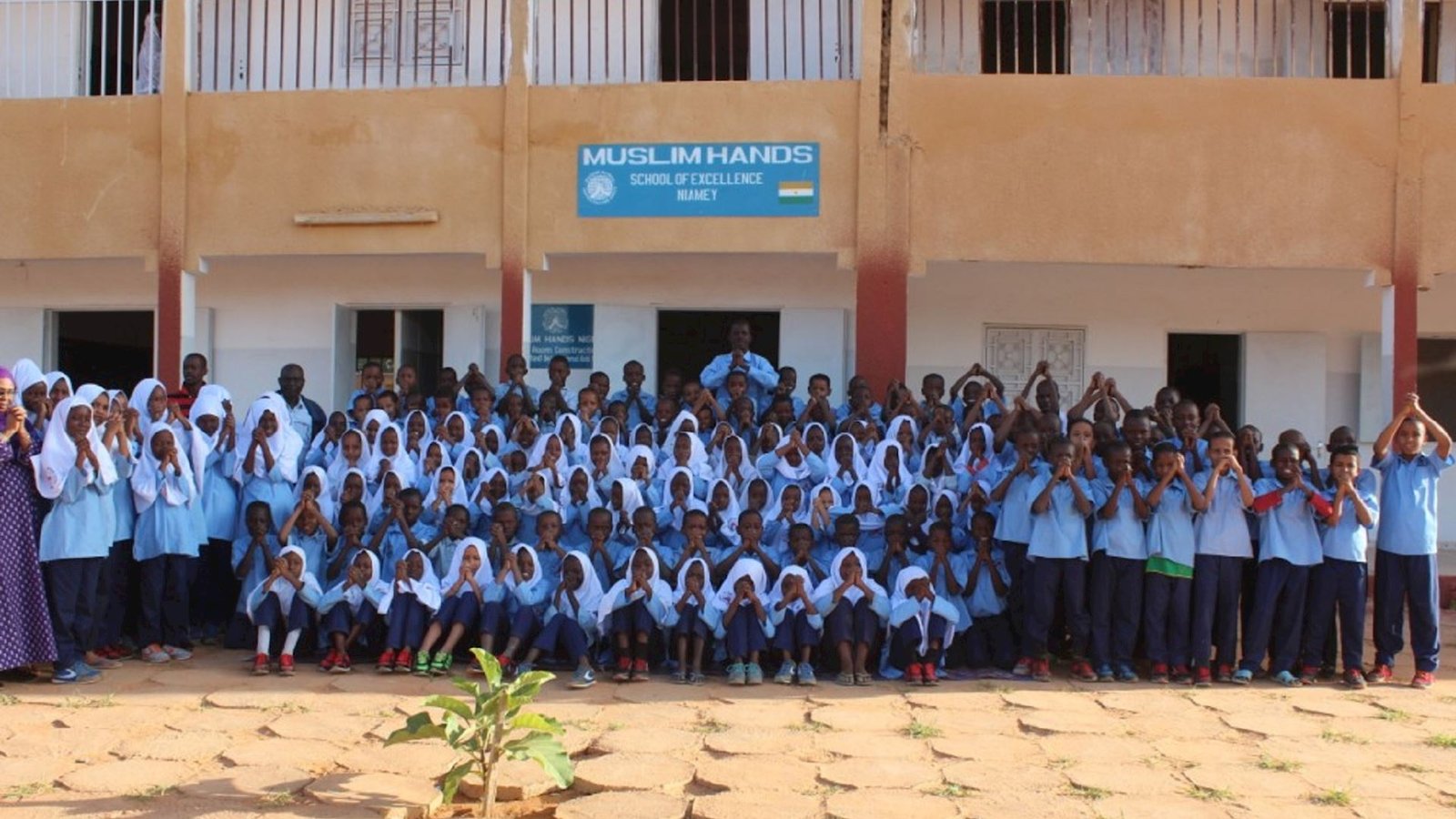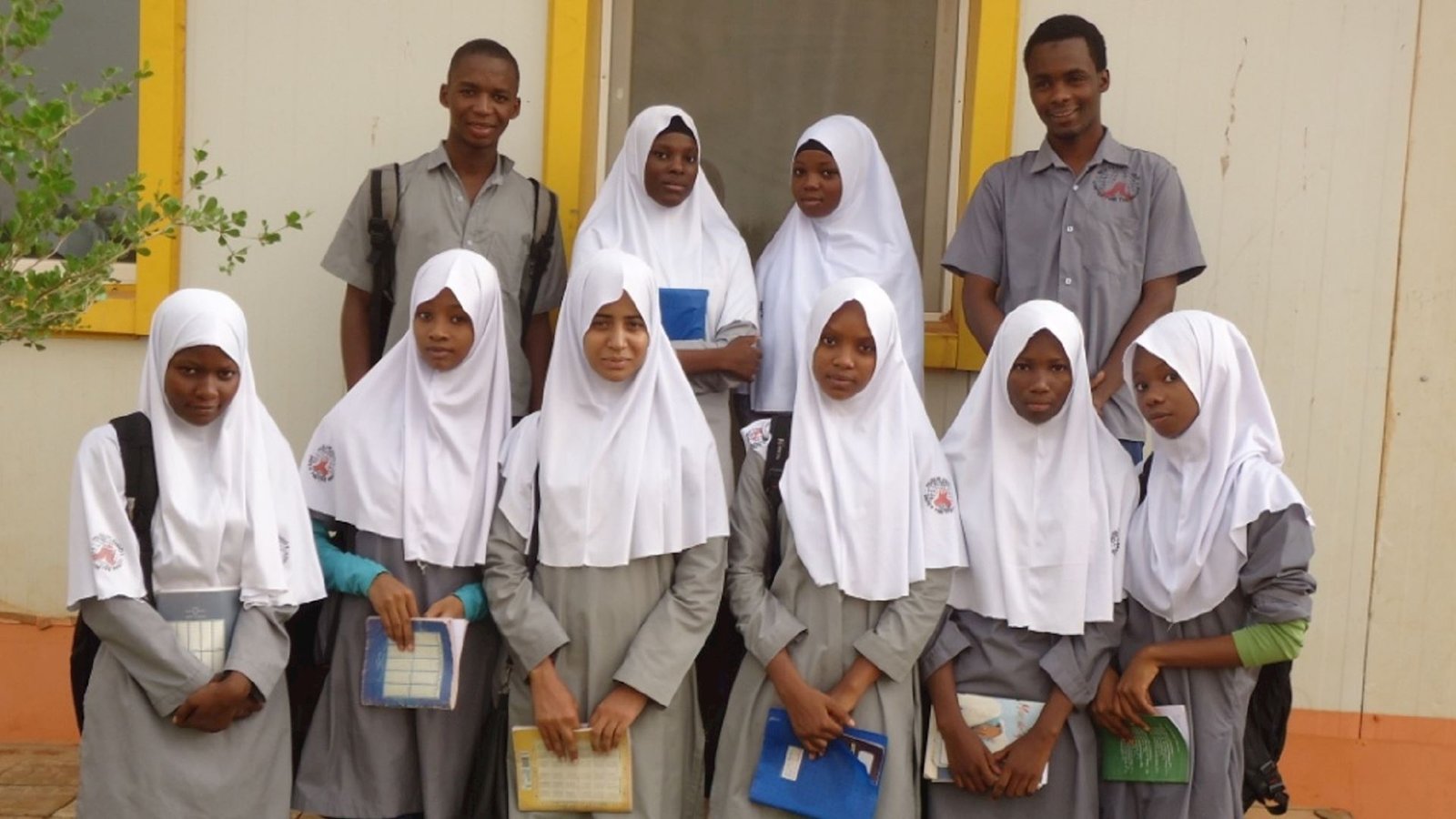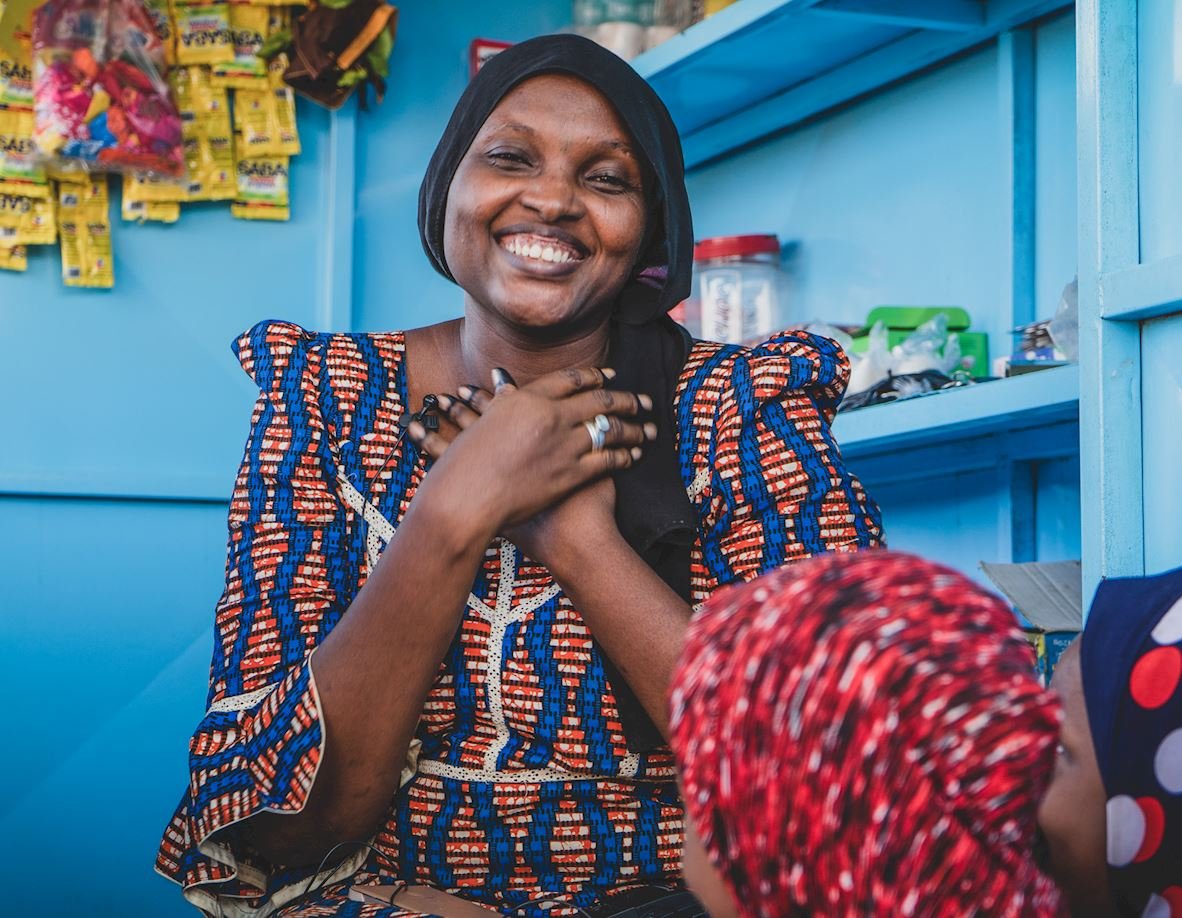WHAT WE DO IN NIGER
![]() Education
Education
![]() Health
Health
![]() Emergency Response
Emergency Response
![]() Livelihoods
Livelihoods
![]() Food Security
Food Security
Niger
Country Situation: Niger ranks among the poorest countries in the world and ranks lowest in the world in terms of Human Development Index. For much of the population, income and life is centered around subsistence agriculture. The country faces dire needs in access to education, health, WASH, food security, with the people becoming particularly vulnerable to unmet needs during disasters.
Our Presence: Muslim Hands International has been working in Niger since 2007 and its country head office located in Niamey is registered with the Ministry of the Interior, Govt. of Niger. MH Niger’s work spans the fields of humanitarianism, poverty alleviation and religious heritage promotion and charity. Most of these activities concern food and nutrition security (for instance, construction and equipment of food stores for the benefit of the most deprived, sinking of village wells and market gardeners, distribution of improved seeds and agricultural equipment to the most deprived), the construction of classrooms, the construction of mosques, the construction and equipment of health centers, income-generating activities, sponsorship of orphans, and food parcel and fresh meat distribution support.
Education
MH Niger has been constructing schools and classrooms in underserved communities across Niger since 2020, helping train teachers, helping enroll students and conducting sports, cultural and artistic activities within schools that engage children and community members and build interest and engagement in school from both children, adolescents, and parents.
Health
In June 2020, MH Niger inaugurated an infirmary for orphans and deprived children in the school it had previously constructed. This infirmary includes a doctors’ office, a nurses’ office, and a treatment room.
During Covid-19, MH Niger intervened by distributing health kits in areas which did not have widespread supplies among poor communities and conducting awareness raising.
Emergency
Over its years in Niger, MH Niger has stepped in to need assessments and accordingly provide aid in the occasion of numerous natural disasters, especially floods where MH Niger distributed emergency kits as relief for the victims of the overflowing of the waters of the Niger River. Furthermore, MH Niger has also distributed 200 food packages consisting of rice, oil, and buckets of water, soap, kettles, mosquito nets and hot meals.
Livelihood
In Niger, one of the most vulnerable segment of the population is widows, many of whom live in poverty, as they lack practical skills with which to seek employment and there is no social safety net to support them and their families. Through this project, MH Niger aimed at empowering widows with skills and formal education so that they can generate income for themselves and for their children/families.
MH Niger carefully chose skills which were suitable for the women, and which could be linked to market demand.For the beneficiaries’, sewing machine was chosen, which is one of the simplest and most effective resources to give to a woman in a poor country to help empower her to earn a respectable living as a seamstress,and support her family to rise out of poverty.
MH Niger provides them their own sewing machine, technical training with formal education so that beneficiaries can have confidence with the stated goal of enabled them to become financially independent and self-sufficient to start and improve their own micro enterprises.
MH Niger provided women with vocational skills, equipment and a shop to become financially self-sufficient.
WASH
64 percent of Niger’s rural population lacks access to clean water. About 90% of citizens lack a proper way to dispose of their own waste. This promotes disease, hurts education&economic growth, and results in the majority of rural Niger’s infant and child deaths. Even to get unsafe water, womenspend most of their time in carrying a few liters of water in cans and jars from distant rivers and springs to their homes.
To address this situation, MH Niger endeavours to provide safe drinking water and sanitation facilities to rural families on sustainable basis by ensuring self-sufficient and permanent drinking water security in the community (via community participation in the need assessment, planning, construction, operation & maintenance of WASH facilities). Moreover, MH Niger engages in sensitization and trainings for personal and household hygiene.
Food security
food distribution program, was conceived in support of government development priorities wherein the government, in accordance with SDG2 (“No Hunger”),had identified families and individuals which are extremely food insecure and these were targeted for the project. The main objectives of the Qurbani project is to give a nutritional meat pack to needy people who cannot afford to eat meat, especially during the Cultural and Religious festivities for family to celebrate the Eid festivalsin joy and prosperity. 4 kilograms pack of nutritional meat was distributed to 14,000 beneficiary families and 500 orphans.



